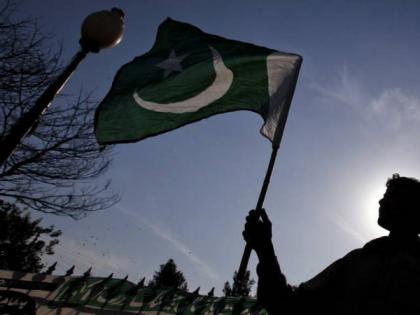Pakistan's cyber-gag law Peca under fire: Report
By ANI | Published: March 1, 2022 12:07 PM2022-03-01T12:07:31+5:302022-03-01T12:15:03+5:30
A provincial court in Pakistan's Balochistan province on Monday admitted a petition that challenged the controversial ordinance amending the country's Prevention of Electronic Crimes Act (Peca) 2016.

Pakistan's cyber-gag law Peca under fire: Report
A provincial court in Pakistan's Balochistan province on Monday admitted a petition that challenged the controversial ordinance amending the country's Prevention of Electronic Crimes Act (Peca) 2016.
These pleas were filed by the Balochistan Union of Journalists (BUJ) and Balochistan Bar Council weeks after the Pakistani government passed an ordinance amending the PECA to make online "defamation" of authorities, including the military and judiciary, a criminal offence with harsh penalties.
"PECA has been used to silence freedom of expression on the pretext of combating 'fake news,' cybercrime, and misinformation," said Nadia Rahman, acting deputy regional director for South Asia at Amnesty International.
"This amendment not only violates the Pakistan Constitution, but also puts anyone who questions the government or other state institutions at further risk. It particularly endangers journalists, human rights defenders, and political opponents who run the risk of prosecution for merely doing their jobs."
Advocate Rahib Buledi, the Balochistan Bar Council inter-provincial chairman, said, "It is malicious on the part of the government to cruelly amend Peca through a presidential ordinance."
Pakistan Prime Minister Imran Khan on Monday defended the amendments to Peca, dismissing the criticism that it was being used to curb media freedom, the Dawn newspaper reported. "The Peca law was made in 2016. We are only amending to curb the filth on social media."
According to the HRW statement, the amendment makes defamation a non-bailable offence, and increases the maximum prison term, if convicted, from three to five years. It also expands the definition of those who can initiate criminal proceedings for defamation, allowing any person or institution to register the complaint.
Pakistan has ratified the International Covenant on Civil and Political Rights (ICCPR), which protects the right to freedom of expression. Article 19 of the ICCPR allows for restrictions on freedom of expression to protect the reputations of others, but such restrictions must be necessary and narrowly drawn.
In a statement, Amnesty International and HRW opposed all criminal defamation laws as a disproportionate and unnecessary response to the need to protect reputations that chills freedom of expression. Expanding PECA's already overbroad criminal defamation provisions to online statements about government institutions violates Pakistan's international obligations, they added.
( With inputs from ANI )
Disclaimer: This post has been auto-published from an agency feed without any modifications to the text and has not been reviewed by an editor
Open in app